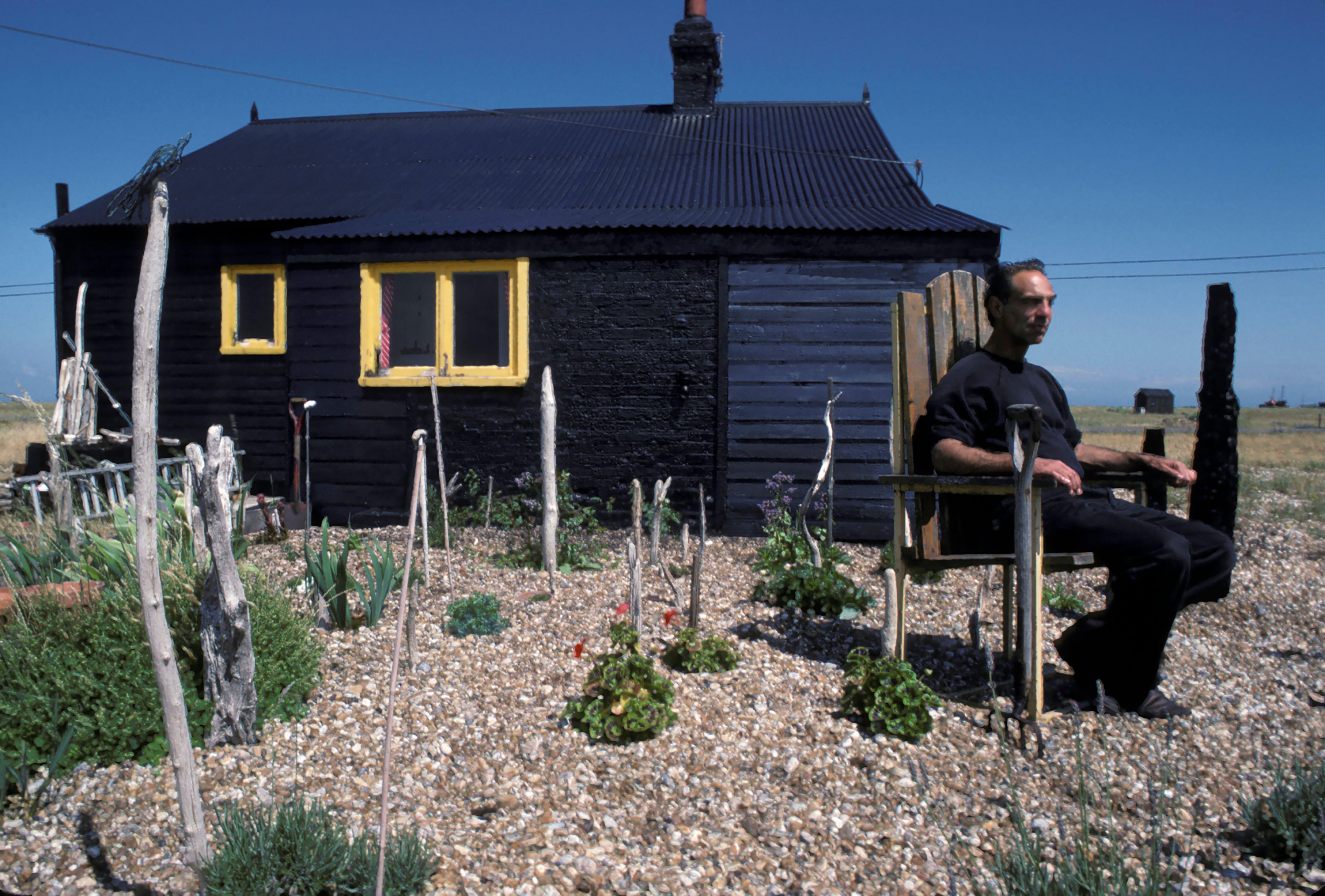Have weekending hipsters uprooted Derek Jarman’s legacy?
When he died, 30 years ago today, the outspoken indie filmmaker could never have imagined he would be best remembered not for his homoerotic epics or his public battle with Aids, but for the wild Dungeness garden that now swarms with down-from-Londoners, says Paul Clements


Fancy a trip to the seaside? I thought we could visit the coast where Derek Jarman started a garden? You know, that bit with the dilapidated fisherman’s cottage that he did up while he was dying with Aids? Dungeness has some great beach walks and loads of seafood places these days – oh, and I’ve had a look on coolstays.com, and there are some really smart cabins on the seafront you can rent, too, so we could even make a weekend of it...
Derek Jarman was – to paraphrase a platitude popular in travel writing – a man of contrasts. The son of an RAF bomber commander, he was, by his own reckoning, “a nice middle-class boy” who became a punk film director, an accomplished painter of more than 400 canvases, a costume and set designer, outspoken gay rights campaigner, keeper of uproarious diaries, and the public face of HIV at the height of the Aids crisis.
Now, three decades after his death – 30 years ago today, aged 52, from Aids-related illnesses that left him with tuberculosis of the liver and robbed him of his sight, but not his iconoclasm – he’s also the unlikely poster boy for the Kent tourist board, his Prospect Cottage on every weekending hipster’s must-see list.
Jarman relished his role as an art-world enfant terrible and thorn in the side of the Thatcher government. He campaigned against Section 28, demanded greater HIV research, and barracked arts bodies for refusing to fund his grainy, homoerotic epic films.
Today, he is a high priest of the colour supplement-reading masses.
His artworks are given retrospectives in respectable galleries (after a recent rehang, Tate Britain finally has on display some of its acquisitions). His near-miraculous ability to grow vast plumes of valerian and santolina in salt-sprayed shingle has made him a regular name dropped on gardening programmes. Prospect Cottage, with its driftwood sculptures, was saved for the nation by £3.5m of public donations, despite not being open to visitors. Rupert Everett has read from his journals on Radio 4. He’s even been mentioned in passing on Coronation Street.
It was all so different in his lifetime. In his opposition to cosy conformity, Jarman feigned to hold straight people, and “heterosoc” in general, in vague contempt. “Heterosexuality isn’t normal,” he writes, “it’s just common.”
To declare oneself queer, as Derek did, was a loaded, political act in a different league to the blue-haired teens who attempt the same today. Britain was vastly more hostile in his lifetime, when it was illegal for people of the same sex to kiss or hold hands in public, queerbashings were a fact of gay life and, in the absence of effective antiretroviral medication, HIV was a death sentence.
So what might Jarman make of his canonisation into the cosy establishment he spent years escaping?
Like many young gay men who found themselves in London in the late Eighties and early Nineties – when the battle for equal rights was just getting noisy – I had a formative encounter with Jarman. And not, unlike others, on Hampstead Heath. He was the first person I ever interviewed. I believe I was one of the last journalists to interview him before his death.
It was 1993, and I was sent to meet him by my university magazine. I had written to him on spec after reading Modern Nature, his excellent diaries (now reissued, in a de-gayed dustjacket designed to appeal more to the horticulturally inclined). In them, he mentioned that he kept a flat on the Charing Cross Road. Back came a letter, on very good stationery and with curiously elaborate purple script, inviting me to spend the morning while he worked at his Kensington studio, on what would be his final paintings.
He was in pitifully poor health, struggling to maintain a walking shuffle, yet the working atmosphere was fun but focused. A couple of assistants flung thick weals of oil paint onto canvases so that the Old Master could then take a palette knife and scrape across it a slogan dripping with gallows humour: “Dizzy Bitch”, “Aids Is Fun”, “F*** Me Blind”.
In conversation, he was wickedly unkind about Ian McKellen, he laughed when I blushed after his extended fantasia about American porn star Jeff Stryker. He insisted that I join his crew for lunch at his favourite Lebanese around the corner.
Jarman’s death came a couple of days before a landmark vote in the House of Commons about equalising the age of consent for gay men, which, at the time, was 21. A protest outside parliament became a candlelit vigil in his honour. But when MPs voted to lower the age only to 18, rather than 16, the anger quickly turned riotous. Jarman has spent a lifetime reaching for that visceral a reaction to injustice. He would surely have relished it.
Blue, his poetic final film, ends with the lines: “Our name will be forgotten in time. No one will remember our work. Our life will pass like the traces of a cloud.” It’s not been true in Jarman’s case. And nor will it, if the Kent tourist board has anything to do with it.
Join our commenting forum
Join thought-provoking conversations, follow other Independent readers and see their replies
Comments
Bookmark popover
Removed from bookmarks